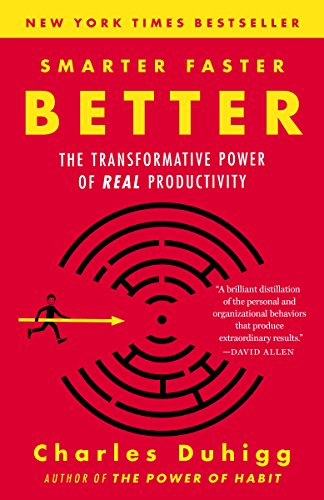Are you ready to take your AI-powered chatbots to the next level? In this article, we will delve into proven strategies for building engaging and effective chatbots using ChatGPT. With the rapid advancement of technology, chatbots are becoming increasingly popular for businesses looking to enhance their customer service and streamline processes. However, creating a chatbot that truly engages users can be challenging. That’s where ChatGPT comes in.
ChatGPT is an innovative language model that combines OpenAI’s GPT-3 with a dialogue system to create conversational agents. By harnessing the power of ChatGPT, you can build chatbots that not only provide accurate and relevant responses but also mimic human-like conversations. But how do you master ChatGPT and optimize its performance?
In this article, we will explore various strategies and techniques that will help you make the most out of ChatGPT. From designing conversation flows to optimizing user interactions, we’ll provide you with actionable tips and best practices. Get ready to create chatbots that leave a lasting impression on your users!

Smarter Faster Better
by Charles Duhigg
⏱ 15 minutes reading time
🎧 Audio version available
The Benefits of Using AI-powered Chatbots
AI-powered chatbots have revolutionized the way businesses interact with their customers. They offer a range of benefits that can significantly improve customer satisfaction and operational efficiency. Firstly, chatbots provide 24/7 support, ensuring that customers can get assistance anytime, anywhere. This eliminates the need for customers to wait for human agents and reduces response times.
Additionally, chatbots can handle multiple inquiries simultaneously, allowing businesses to handle a higher volume of customer queries and support a larger customer base without increasing staffing costs.
Moreover, chatbots can quickly access and retrieve information from databases, providing customers with accurate and consistent responses.
AI-powered chatbots also offer personalized and context-aware interactions. By leveraging ChatGPT’s advanced language processing capabilities, chatbots can understand user intents and preferences, tailoring their responses accordingly. This level of personalization enhances the customer experience and builds stronger relationships between businesses and their customers.
Understanding the Capabilities of ChatGPT
ChatGPT is an impressive language model developed by OpenAI. It combines the power of GPT-3 with a dialogue system, enabling it to engage in back-and-forth conversations with users. ChatGPT is trained on a vast amount of data from the internet, allowing it to generate coherent and contextually relevant responses.
One of the key strengths of ChatGPT is its ability to mimic human-like conversations. It can understand and respond to a wide range of queries, providing accurate and informative replies. However, it’s important to note that ChatGPT is not perfect and may occasionally produce incorrect or nonsensical answers. Therefore, it’s crucial to train and fine-tune ChatGPT to optimize its performance for specific use cases.
Planning Your Chatbot Strategy
Before diving into building a chatbot with ChatGPT, it’s essential to have a clear strategy in place. Start by defining the goals and objectives of your chatbot. Are you looking to enhance customer support, drive sales, or automate specific processes? Understanding your desired outcomes will help you design conversations and interactions that align with your business objectives.
Next, identify your target audience and their needs. What are the common pain points or frequently asked questions they have? By understanding your audience, you can craft chatbot conversations that address their specific concerns and provide valuable solutions. Additionally, consider the tone and personality you want your chatbot to convey, as this will impact how users perceive and engage with it.
Designing Effective Chatbot Conversations
Designing effective chatbot conversations is crucial for creating engaging and user-friendly experiences. The conversation flow should be logical and intuitive, guiding users towards their desired outcomes. Start with a welcome message that introduces the chatbot and sets the right expectations. Clearly communicate what the chatbot can do and how it can assist users.
Break down complex queries into smaller, more manageable steps to ensure users understand and follow along. Use prompts and suggestions to guide users and offer options for them to choose from. This helps to keep the conversation structured and prevents users from getting overwhelmed or frustrated.
Another key aspect of designing effective chatbot conversations is providing clear and concise responses. Avoid lengthy or convoluted answers that may confuse users. Instead, focus on delivering information in a straightforward manner. If the chatbot is unable to provide a satisfactory response, it should gracefully hand off the conversation to a human agent or offer alternative solutions.
Implementing ChatGPT in Your Chatbot Platform
Now that you have planned your chatbot strategy and designed effective conversations, it’s time to implement ChatGPT in your chatbot platform. OpenAI provides an API that allows developers to integrate ChatGPT into their applications. By leveraging the API, you can send user messages to ChatGPT and receive model-generated responses.
To integrate ChatGPT seamlessly, ensure that the user interface of your chatbot platform is user-friendly and intuitive. Clearly label input fields and provide guidance on how users should interact with the chatbot. Additionally, consider incorporating features such as typing indicators and message previews to improve the user experience.
It’s important to set up proper error handling mechanisms to handle cases where ChatGPT may produce incorrect or nonsensical responses. Implement fallback options that allow users to provide feedback or escalate the conversation to a human agent if needed. Regularly monitor and analyze the performance of ChatGPT to identify areas for improvement and fine-tuning.
Best Practices for Training and Fine-tuning ChatGPT
Training and fine-tuning ChatGPT is crucial to optimize its performance for your specific use case. Begin by curating a high-quality dataset that aligns with your desired chatbot objectives. The dataset should contain relevant dialogues and conversations that reflect the interactions you expect from your chatbot.
When training ChatGPT, consider using reinforcement learning techniques to improve its responses over time. Implement feedback loops that allow users to rate the quality of responses and provide suggestions for improvement. This feedback can be used to fine-tune the model and make it more accurate and helpful.
Regularly update and retrain ChatGPT to ensure that it stays up to date with the evolving needs of your users. As your chatbot interacts with real users, collect valuable data on user interactions and preferences. Analyze this data to identify patterns and trends that can be used to further enhance the chatbot’s performance.
Measuring the Effectiveness of Your AI-powered Chatbot
Measuring the effectiveness of your AI-powered chatbot is essential to understand its impact on your business and identify areas for improvement. Define key performance indicators (KPIs) that align with your chatbot goals, such as customer satisfaction ratings, response times, or conversion rates.
Leverage analytics tools to track and analyze user interactions with your chatbot. Monitor metrics such as the number of conversations, average session duration, and user drop-off rates. Analyze user feedback and sentiment analysis to gain insights into customer satisfaction and identify areas where the chatbot can be enhanced.
Continuously iterate and optimize your chatbot based on the insights gained from data analysis. Make data-driven decisions to improve the chatbot’s performance and address any pain points or challenges identified through user feedback.
Overcoming Common Challenges in Building Chatbots with ChatGPT
Building chatbots with ChatGPT may present some challenges along the way. One common challenge is handling out-of-scope or ambiguous queries. ChatGPT may struggle to provide relevant responses to queries that fall outside its training data or are unclear. Implementing a robust intent recognition system can help identify such queries and handle them appropriately.
Another challenge is maintaining a consistent personality and tone throughout the conversation. ChatGPT’s responses may vary in style and tone, which can confuse users. To address this, consider fine-tuning ChatGPT with additional prompts that explicitly define the desired personality traits.
Lastly, ensure the privacy and security of user data when using ChatGPT. Implement data encryption and follow best practices for data handling to protect user information. Clearly communicate your data privacy policies to users and provide options for them to opt-out or delete their data if desired.
The Future of AI-powered Chatbots and ChatGPT
AI-powered chatbots have revolutionized the way businesses interact with their customers, providing efficient and personalized support. With ChatGPT, businesses can take their chatbots to the next level by creating engaging and effective conversational experiences. By following the proven strategies and techniques outlined in this article, you can master ChatGPT and optimize its performance for your specific use case.
As technology continues to advance, the capabilities of AI-powered chatbots will only grow. ChatGPT represents a significant step forward in natural language processing and dialogue systems. By leveraging ChatGPT and staying updated on the latest developments in the field, businesses can stay ahead of the competition and provide exceptional customer experiences.
ChatGPT opens up exciting possibilities for building engaging and effective AI-powered chatbots. With careful planning, design, implementation, and continuous improvement, businesses can harness the power of ChatGPT to create chatbots that leave a lasting impression on their users. Embrace the future of chatbot technology and unlock its full potential with ChatGPT.
What Is Snapreads?

With the Snapreads app, you get the key insights from the best nonfiction books in minutes, not hours or days. Our experts transform these books into quick, memorable, easy-to-understand insights you can read when you have the time or listen to them on the go.


